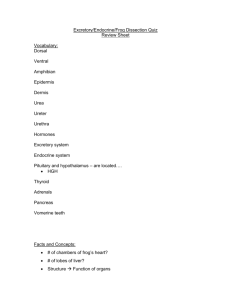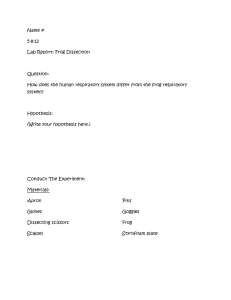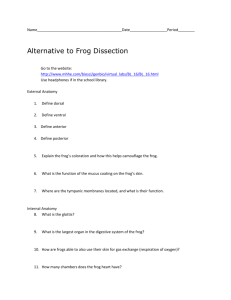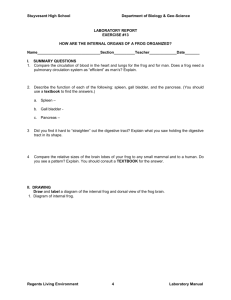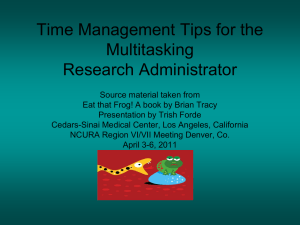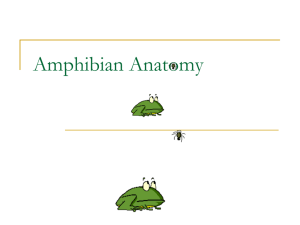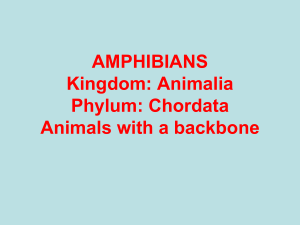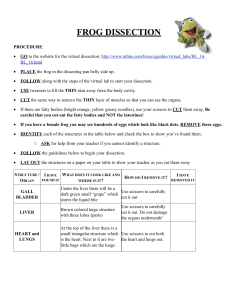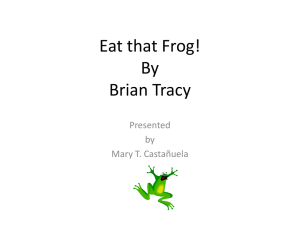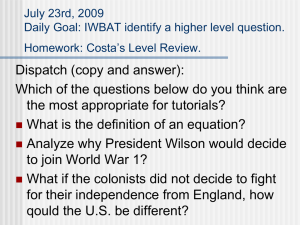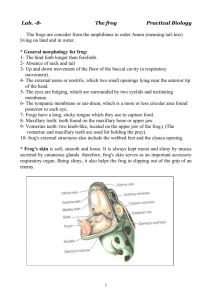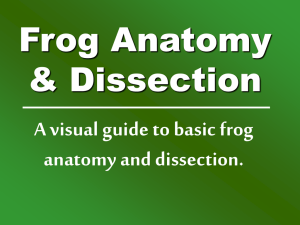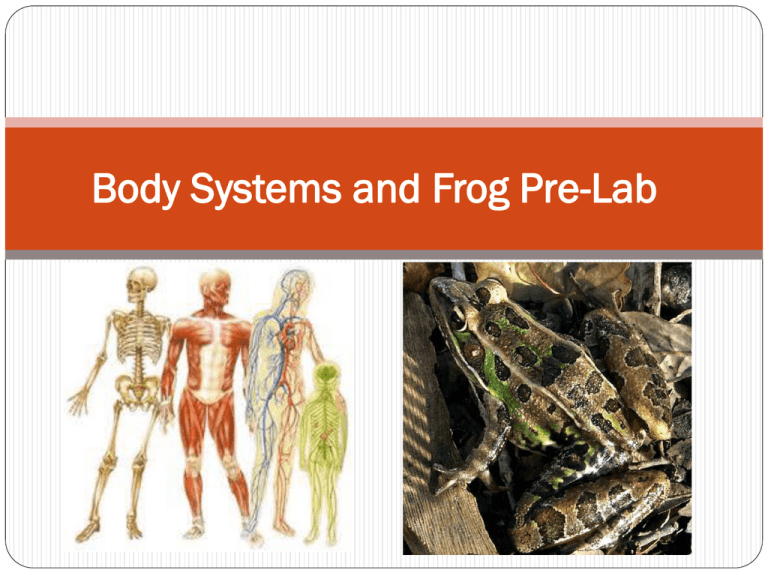
Body Systems and Frog Pre-Lab
Circulatory
Carries needed material to and waste away from the body
Digestive
Takes in food, breaks it down, & absorbs nutrients
Endocrine
Controls many regulatory processes by mean of chemicals
Excretory
Removes waste
Immune
Fights disease
Muscular
Enables the body to move (voluntary & involuntary motion)
Detects and interprets information from the environment outside
the body and from within the body
Reproductive
Produces sex cells & controls male & female characteristics
Respiratory
Gas Exchange of oxygen and carbon dioxide
Skeletal
Supports the body, protects it and works with muscles to allow
movement
Skin(Integumentary)
Protects the body, keeps water inside the body & regulates body
temperature
Nervous
Levels of Organization
chemicals
atoms
molecules
macromolecules
organelles
cells
tissues
organs
organ systems
organism
Leopard Frog
Amphibians
Kingdom:
Phylum:
Order:
Family:
Genus:
Species:
Frog Sound
Animalia
Chordata
Anura
Ranidae
Rana
pipiens
Amphibians
Lobe-finned fish gave rise to early amphibian
Coelacanth ~ 6.5 feet
Early Amphibian ~ 15 feet
Amphibian
Characteristics
1. Legs – adaptation to land
2. Lungs (adult) – adaptation to
land
3. Double-loop circulation
4. Partially Divided heart
divided into left and right sides –
3 chambers
5. Cutaneous Respiration –
the ability to breath through the
skin
3 methods to take in Oxygen
Gills
Cutaneous
Respiration (skin)
Lungs
Order Urodela (Salamanders) – “tailed
ones”
Mexican
axolotl
Tiger
Salamander
Giant Salamander –found
in Asia and China
Pacific Giant Salamander
Red Spotted
Newt
Order Caecilians - “legless ones”
Costa Rican - Gymnopis
multiplicata
Purple Caecilian
Order Anura - “Tailless one’s”The Harlequin Frog
Bullfrog
Wallace’s
Flying Frog
Golden Poison
Dart Frog
Red-Eyed Tree Frog
Cane Toad
Strawberry Poison
Dart Frogs
Homework: Frog CHART
Organ/ Structure
Countershading
Nictitating membrane
Tympanic membrane
Tongue
Gullet
Glottis
Eustachian tube
Maxillary teeth
Vomerine teeth
Fat bodies
Liver
Heart
Lungs
Gall bladder
Stomach
Small intestine
Mesentary
Large intestine / Cloaca
Spleen
Esophagus
Kidneys
Testes
Sperm duct
Ovaries
Oviduct
Bladder
System
Function
Structures
Nictitating membrane
Tympanic membrane
Structures:
Tongue
Gullet
Glottis
Eustachian tube
Maxillary teeth
Vomerine teeth
Structures
Fat bodies
Liver
Heart
Lungs
Gall bladder
Structures
Stomach
Small intestine
Mesentary
Large intestine/
Cloaca
Spleen
Esophagus
Frog Review

